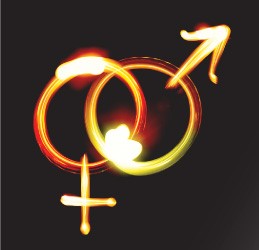– Corrado Gnerre
I know I am going to ask for something that has often been discussed in your column, but for this very reason I believe that you are most suitable to help me out. I frequently find myself having to argue with people who say that there is nothing wrong with homosexuality. And I don’t hide from you that not a few of these are also practicing Catholics and often take part in parish activities. How can I properly set up the discussion in order to adequately counteract?
Dear …, let’s proceed with order. According to natural and supernatural law, the ends of human sexuality are two: procreative and unitive. It is clear that the procreative goal in the context of homosexuality cannot be achieved. This already makes us understand how much homosexual practice falls outside the natural order.
But there is also another point to consider. I refer to the fact that man is not only his spirit (i.e. his soul) but also his body. The body is not something additional, so if there is or there isn’t is equally good. It is an integral part of the human person. If the soul is the “organic form” of the body, it means that this (the body) is constitutive of the human person. The soul is to the body just as the form is to matter. Now – no one can deny it – the body is sexed. The body is male and female; and it is masculine and feminine by nature, not by choice. If it is true that the psyche influences the body and the opposite is true, that is, that the body influences the psyche. So much so that the difference between man and woman is not only corporeal, but above all psychological. Man is man in all of himself. Woman is woman in all of herself.
This premise is important to understand how human sexuality is not reducible to a “choice,” but is an expression of elements that precede it and that offer themselves as facts that man must naturally recognize and cannot dispose of according to his whim.
Dear …, remind your parish friends of paragraph 2357, of the Catechism of the Catholic Church where it is said: Basing itself on Sacred Scripture, which presents homosexual acts as acts of grave depravity,, tradition has always declared that “homosexual acts are intrinsically disordered.” They are contrary to the natural law. They close the sexual act to the gift of life. They do not proceed from a genuine affective and sexual complementarity. Under no circumstances can they be approved. Also, tell your friends that the term “nature” here refers to Aristotle’s good doctrine and does not indicate, as is often believed, what animals do or what happens in nature. Nature is the principle, present in everything (therefore also in the human person) that guides the growth and development of the reality in which it is present, aiming to achieve the end that is proper to that particular reality. In the case of the human person, being not only a body, but also a spirit (and therefore reason), acting according to one’s own nature means reaching the end which is in conformity with one’s own rational nature. Another argument applies to the beasts.
Obviously, Catholic morality distinguishes between homosexual orientation and homosexual practice. The first is not susceptible of moral judgment, but on one condition: if it is not tolerated and indulged. The second one is always to be condemned.
Dear …, also remind your friends: unlike what many homosexual lobbies say, it must be said that until the nineteenth century homosexuality – understood as a disorder of gender identity – did not exist; instead, homosexual acts existed, that is, sodomy. In Ancient Greece, relations between an adult male and a teenager had a “pedagogical” purpose and responded to an initiation rite. This does not mean that the ancient Greeks were homosexuals (they did not have a stable and exclusive inclination towards men) nor pedophiles (considering homosexuality “natural” for these relationships means considering pedophilia natural). In Rome, however, the male model was essentially the military one, and sexuality was of a predatory type, that is, of rape. Having sexual relations with a slave, or with a prisoner, meant manifesting one’s virile and military superiority. Obviously they were those times – culturally – of ignorance of the true and – beyond the natural dimension – of subjection from the devil. But there was no lack of bright teachings. Including those of Plato, who though passes for one who has endorsed similar practices. In Plato’s The Laws he criticizes those who have “corrupted the ancient and natural norm relating to the sexual pleasures not only of human beings, but also of animals.” Then he explains: “It must be considered that, apparently, pleasure was assigned according to nature both for females and for males to mate in order to procreate, while the erotic relationship of males with males and females with females is against nature and this daring act arises from the inability to dominate pleasure.”
(From La buona battaglia. Apologetica cattolica in domande e risposte, 2019©Chorabooks. Translated by Aurelio Porfiri. Used with permission of the publisher. All rights reserved)


 Follow
Follow


